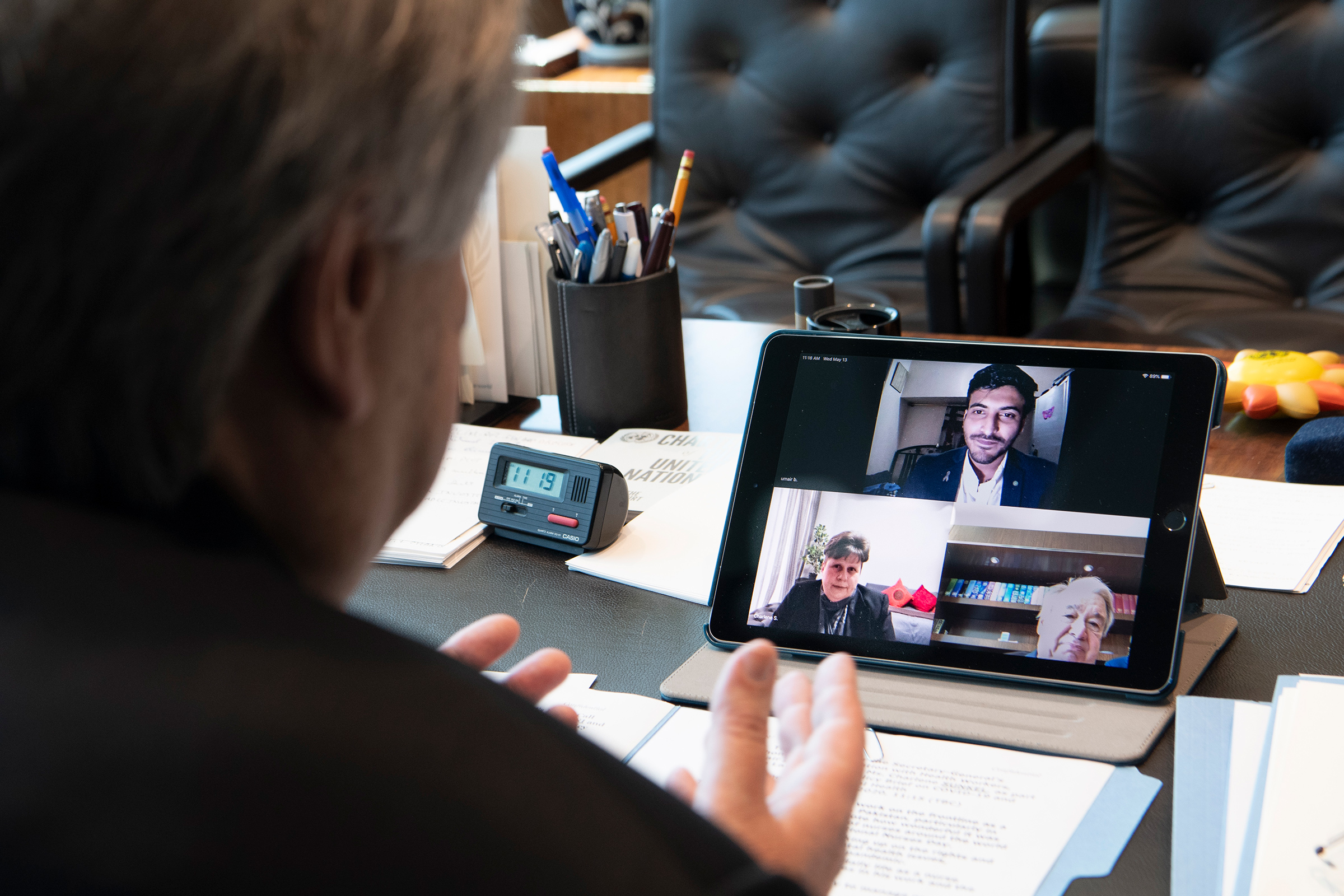The COVID-19 virus is not only attacking our physical health; it is also increasing psychological suffering. Mental health is at the core of our humanity. It enables us to lead rich and fulfilling lives and to participate fully in our communities.
Even without the pandemic, one in four of us will suffer a mental health episode during our lifetimes. The shocks associated with COVID-19 are now pushing many towards greater fragility and pain: grief at the loss of loved ones; anxiety at the loss of jobs; isolation and restrictions on movement; difficult family dynamics; uncertainty and fear for the future. Each of these on its own can trigger or deepen distress. Today many people are suffering several simultaneously.
Healthcare workers are among those most deeply affected. Recently, I had the opportunity to talk to Umair Bachlani, an intensive care nurse in Karachi, Pakistan, about how he deals with personal and professional stress. Mr Bachlani and his colleagues wear protective equipment for up to 16 hours a day while trying to save lives. When they go home at the end of a long shift, they must live separately from their families in order to protect them from possible infection.
Charlene Sunkel, a South African advocate on mental health issues who is living with schizophrenia, told me that after decades of neglect and underinvestment in mental health services, she is deeply concerned about the dramatic increase in psychological conditions due to COVID-19. She pointed out that while the physical symptoms caused by the virus may disappear in weeks, people will continue to suffer the impact of grief, anxiety and depression for months or even years. In addition to healthcare workers, those most at risk are older people, adolescents, people with pre-existing mental health conditions and those already caught up in conflict and crisis.
I have always believed that mental health problems, including depression and anxiety, are some of the greatest causes of human misery. My late first wife was a psychoanalyst, and my sister is a psychiatrist. Through them, and through my work in politics and as High Commissioner for Refugees, I came to understand the crippling burden of poor mental health, particularly for people in crisis situations. This suffering is often exacerbated by stigma and discrimination, making people afraid to seek help.

In many countries, COVID-19 is leading to cuts in mental health services and the closure of facilities. Unless we act now to address the mental health needs associated with the pandemic, there will be enormous long-term consequences for families, communities and societies.
This very concerning picture is the backdrop to the policy brief on COVID-19 and mental health that the United Nations launched on May 13. It includes recommendations to governments and others that can help mitigate the mental health dimensions of the pandemic.
Mental health services are an essential part of all government responses to COVID-19. They must be expanded and fully funded.
Policies must support and care for those affected by mental health conditions, and protect their human rights and dignity. Lockdowns and quarantines must not discriminate against those with poor mental health.
As we recover from the pandemic, we must take the opportunity to build mental health services for the future, by shifting services to the community, making them accessible online, and making sure mental health is included in universal health coverage. It will be essential to involve people with lived experience of mental health conditions in designing and delivering services.
There is no health without mental health. The United Nations is strongly committed to creating a world in which everyone, everywhere, has someone to turn to for psychological support.
I urge governments, civil society, health authorities and others to come together urgently to address the severe mental health consequences of this pandemic.
More Must-Reads from TIME
- Donald Trump Is TIME's 2024 Person of the Year
- Why We Chose Trump as Person of the Year
- Is Intermittent Fasting Good or Bad for You?
- The 100 Must-Read Books of 2024
- The 20 Best Christmas TV Episodes
- Column: If Optimism Feels Ridiculous Now, Try Hope
- The Future of Climate Action Is Trade Policy
- Merle Bombardieri Is Helping People Make the Baby Decision
Contact us at letters@time.com